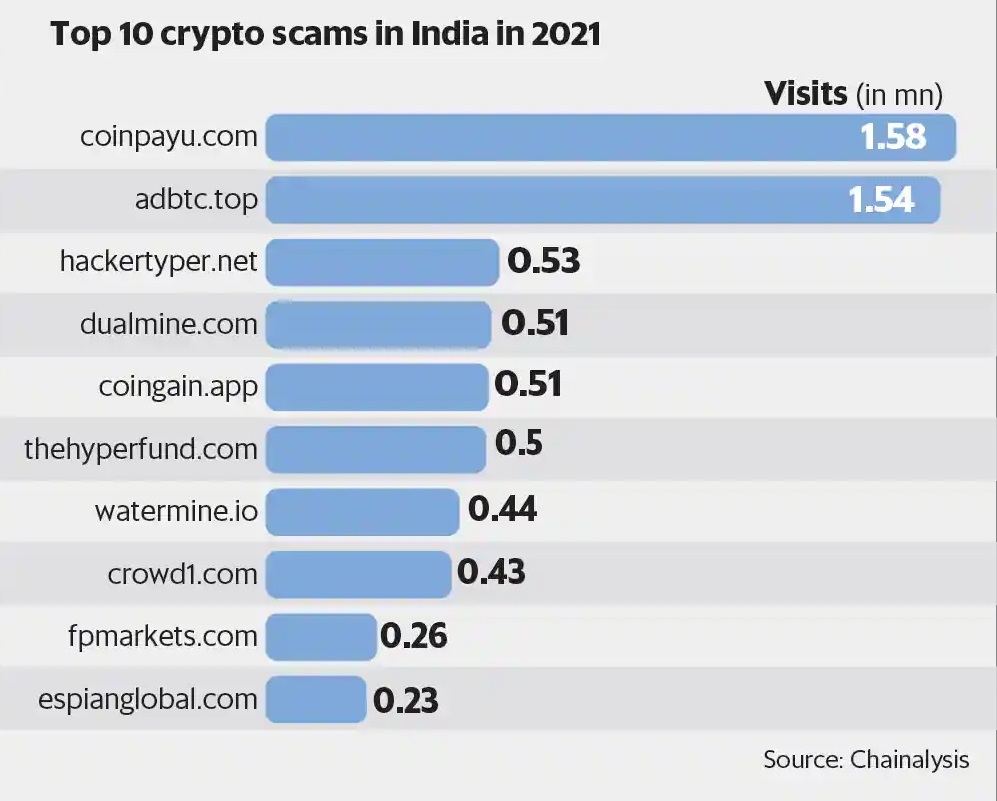Indians visited crypto scam websites nearly 10 million times last year, according to blockchain data analytics firm Chainalysis. The top crypto scam sites alone were visited 4.6 million times by Indian users.
Millions of Indians Visit Crypto Scam Sites
Indians visited scam crypto websites in droves over the past years, according to data from blockchain analytics firm Chainalysis.
The firm found that Indians visited cryptocurrency scam websites 9.6 million times last year. In 2020, the figure was much higher. Crypto scam websites were visited 17.8 million times by Indian users.
The top cryptocurrency scam websites visited the most by Indians over the past year, according to Chainalysis, were coinpayu.com, adbtc.top, hackertyper.net, dualmine.com, and coingain.app. The top five crypto scam sites alone received 4.6 million visits from India last year.

Indian authorities have been working on several cryptocurrency scam cases. Earlier this month, the country’s Enforcement Directorate (ED) seized assets worth about $5 million in an alleged cryptocurrency scam involving Morris Coin.
Cryptocurrency scams are among the top priorities for regulators worldwide. The North American Securities Administrators Association (NASAA) recently released its “annual list of top investor threats,” putting crypto scams on top of the list. Furthermore, the U.S. Federal Trade Commission (FTC) recently warned consumers about scams involving cryptocurrency ATMs.
What do you think about how often Indians visited crypto scam websites? Let us know in the comments section below.
Image Credits: Shutterstock, Pixabay, Wiki Commons
Disclaimer: This article is for informational purposes only. It is not a direct offer or solicitation of an offer to buy or sell, or a recommendation or endorsement of any products, services, or companies. Bitcoin.com does not provide investment, tax, legal, or accounting advice. Neither the company nor the author is responsible, directly or indirectly, for any damage or loss caused or alleged to be caused by or in connection with the use of or reliance on any content, goods or services mentioned in this article.





